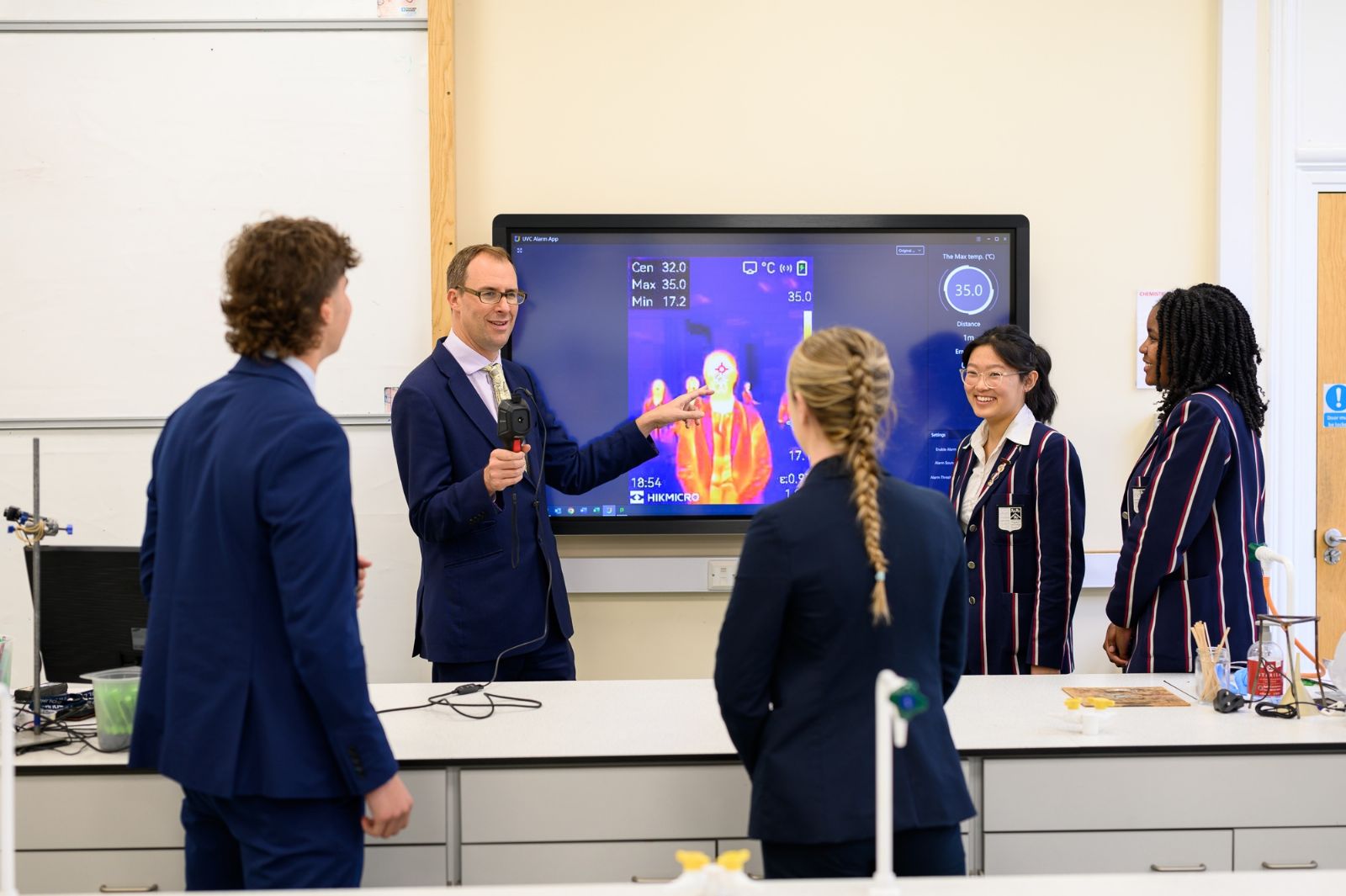Our Head of Physics is Mr S Chillcott
Introduction
Physics is the study and discovery of the laws of nature which govern the quarks inside the nucleus of an atom through to the structure of the cosmos and interactions of distant galaxies. At Solihull, we aim to share the wonder of the Physical World through the students exploring Physics in a ‘hands on’ way as much as possible through practical work which both challenges and inspires. We are fortunate to have a very well resourced prep room, with an extensive suite of data logging and ICT equipment. In addition, we also bring in resources from outside the school, such as when we borrowed moon rocks and meteorites from NASA.
Curriculum
GCSE
This is taught over three years beginning in the Fourth Form (Year 9). We follow the AQA specification. The majority of pupils take Physics as a separate science at Higher Tier.
Sixth Form
We follow the AQA specification. This has the advantage of continuity from GCSE in the Centre Assessed Unit (ISA).
CLICK HERE TO LEARN MORE ABOUT PHYSICS AT A LEVEL
Co-curricular Activities
Stretch & Challenge
The department runs weekly sessions to prepare students for the Physics Challenge/Olympiad competitions run by the BPHO at Oxford University for each of the year groups from the Lower Fifth (Year 10) through to the Upper Sixth (Year 13) (Physics Olympiad). We typically enter over 40 participants across the four year groups winning Gold, Silver and Bronze Awards.
Clinics
We run clinics every week where students can ‘drop in’ for additional one-on-one support should they be finding any aspect of the course particularly demanding.
Science and Engineering Club
The department runs a weekly Science and Engineering Club which, generously funded by the PA, uses Technical LEGO and Meccano kits that the students use to produce some very complex models including radio-controlled vehicles and a model racing car. The club also has other activities like paper bridge building and as well as some fun science experiments for younger pupils in the early part of the academic year.
The Engineering Education Scheme (EES)
Annually, as part of their Aspire programme, a group of 12 Lower Sixth students complete the Engineering Education Scheme (EES) at School, working on Engineering projects in conjunction with Jaguar Land Rover. Previous projects have involved developing improvements to the parking / manoeuvring systems for large vehicles, a prototype of a system which would raise and lower a sensor controlled ground level spoiler system when it detected obstructions and a sensor which triggers an alarm if a pedestrian or cyclist is adjacent to the rear door of a car.
The programme includes a launch event, where the students complete a series of team working and problem solving activities during the day as well as learning about project management. Students also get to visit Jaguar Land Rover’s plant at Gaydon, which gives the pupils an idea of the scale of the design and research work that the company is involved in to develop their vehicles. The highlight of the programme is a two-day workshop at Loughborough University where the students have access to state of the art equipment to enable them to complete much of the practical work.
Trips & Visits
The department runs a biennial trip for A Level Physics students to CERN, the largest particle accelerator in the world located in Geneva, Switzerland. In 2020, we were fortunate enough to go underground and see one of the four main detectors at CERN, the CMS (Compact Muon Solenoid).
The department also runs a series of visits across the year to support with Science, Technology, Engineering and Maths (STEM) such as:
- Girls in STEM day for year 9 female students aimed at encouraging more girls to become involved in STEM subjects and careers.
- STEM discovery day, designed for year 10 girls and boys who are beginning to think about A Level choices and may be considering STEM subjects.
- A Level Science Live event at Birmingham University in which students attended a series of lectures given by selected academics.
- Astronomy in the City evening event also at Birmingham University which includes lectures and the chance to observe the stars.
Destinations
In recent years, students have gone on to read Physics or Engineering at Birmingham, Durham, Cambridge, Imperial College, Leeds, Manchester, Nottingham and Royal Holloway College amongst other universities.


